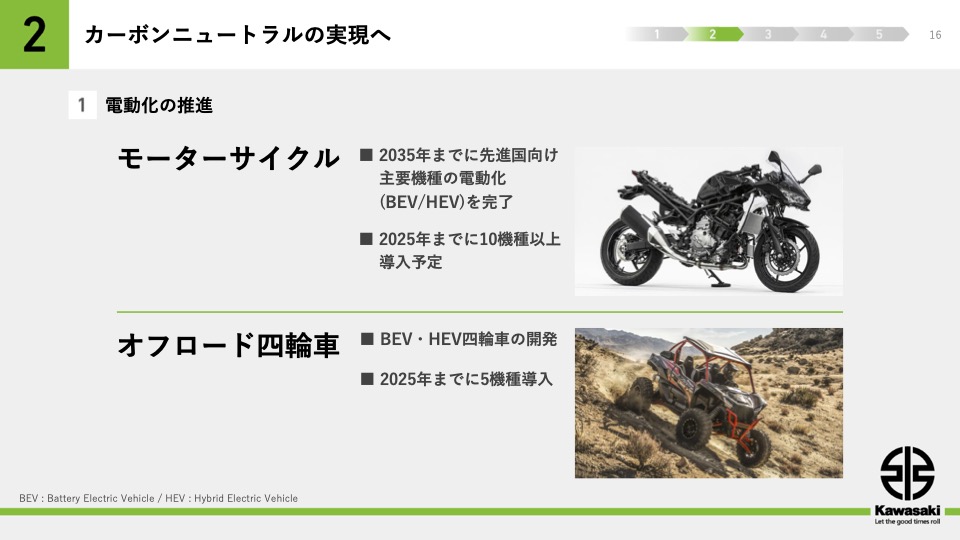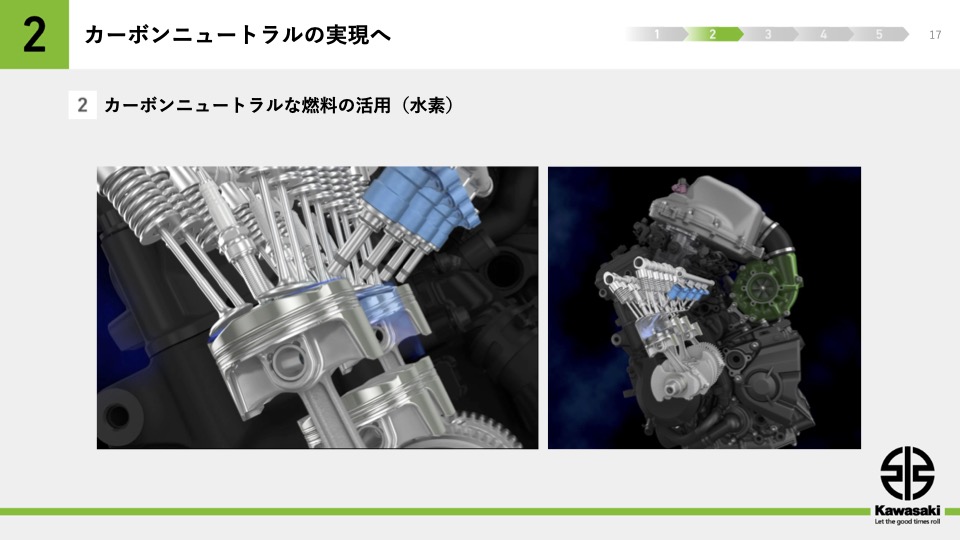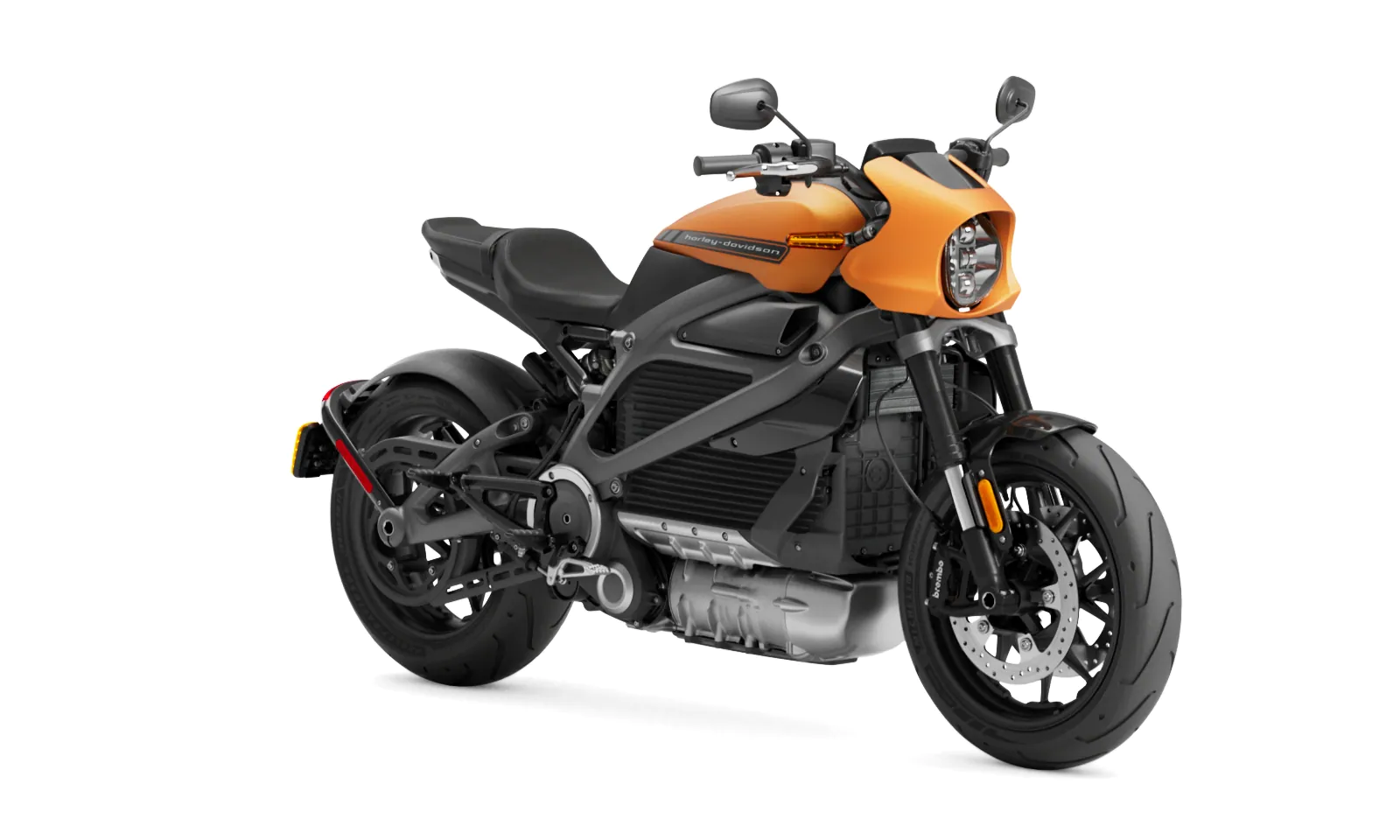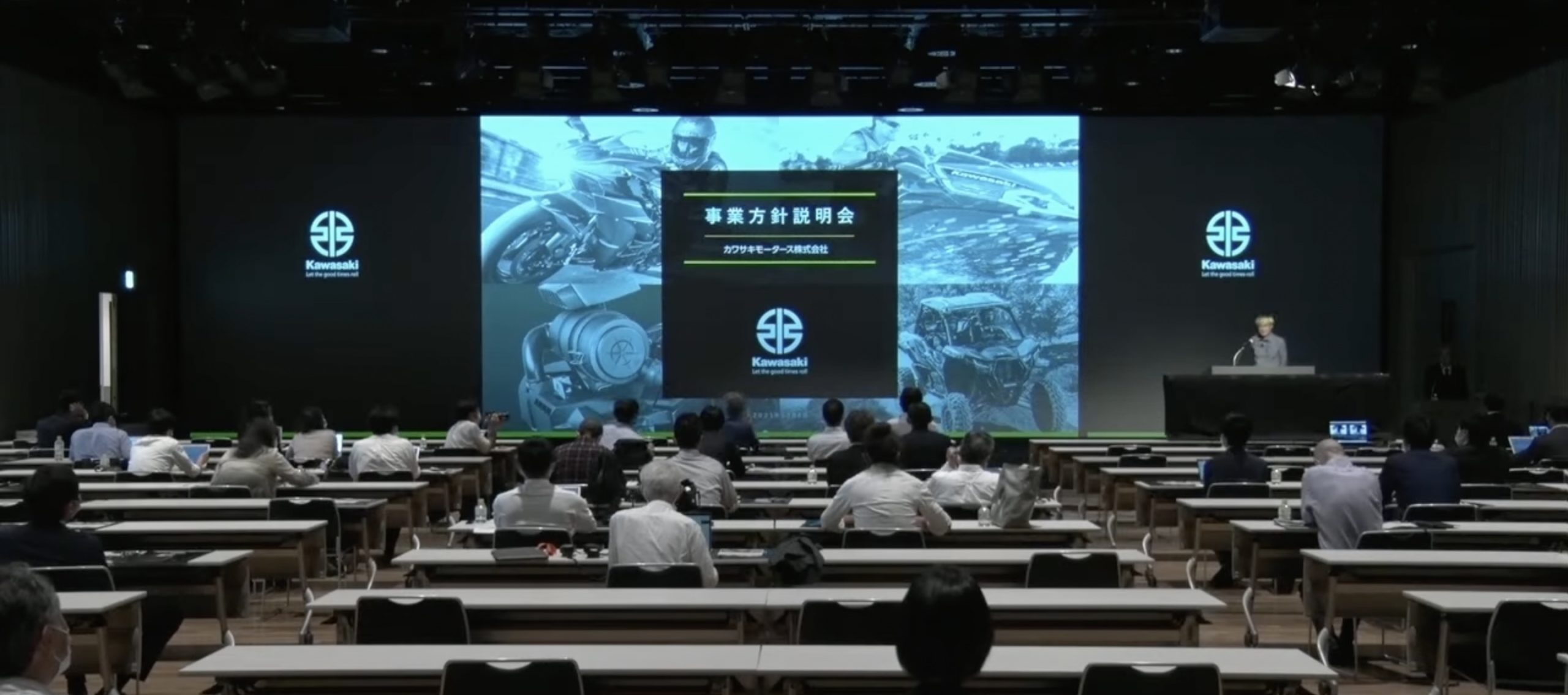On October 6, 2021, Kawasaki Motors, a motorcycle and recreational vehicle company under Japan’s Kawasaki Heavy Industries, held a business policy briefing to explain their upcoming development direction to industry stakeholders and investors.

As a leading enterprise in Japan’s motorcycle industry, Kawasaki Motors is expected to reach a revenue of 410 billion yen, approximately 3 billion RMB, in the fiscal year 2021. More than half of this revenue will come from motorcycles, while the rest will come from off-road motorcycles, personal watercrafts, and internal combustion products.
In light of sustainable development goals for Earth, carbon neutrality is becoming a global issue that is changing the way we travel. To secure future market share, even motorcycles, which are primarily used for recreational purposes, must embrace electrification.

At this briefing, Kawasaki Motors emphasized its specific policy towards electric motorcycles.
- By 2035, they will promote mainstream electric or hybrid vehicles in countries at the forefront of electrification
- By 2025, at least 10 vehicle models will be electrified
Kawasaki Motors will also electrify its all-terrain four-wheelers and introduce this technology into five related models by 2025.

Chemical batteries are not the only carbon-neutral energy storage medium. Hydrogen energy, a unique Japanese feature, is also one of Kawasaki’s development directions.
However, unlike fuel cell vehicles, Kawasaki’s research focuses on directly burning liquefied hydrogen gas. This approach also uses traditional internal combustion engines, so there won’t be much difference in the drive system. Because the biggest challenge of electric motorcycles is how to lay out the battery pack, which has a lower energy density than gasoline and increases weight and size, this impact will hurt the enjoyment and practicality of motorcycles, which depend on a balance between weight and size, more than it will for cars.
 Currently, apart from Harley-Davidson’s Livewire, which costs around $30,000, there is no other traditional motorcycle company producing electric motorcycles that meet the traditional sense (cross riding, non-hub motor) on the market. Therefore, let us look forward to the appearance of more products on this track, making the choices for future green travel more diversified.
Currently, apart from Harley-Davidson’s Livewire, which costs around $30,000, there is no other traditional motorcycle company producing electric motorcycles that meet the traditional sense (cross riding, non-hub motor) on the market. Therefore, let us look forward to the appearance of more products on this track, making the choices for future green travel more diversified.
🔗Source: Kawasaki Heavy Industries
This article is a translation by ChatGPT of a Chinese report from 42HOW. If you have any questions about it, please email bd@42how.com.
